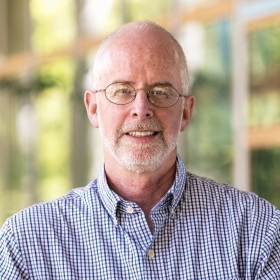“They’re violating the spirit of the Constitution, and they know it,” Associate Professor of Political Science Nancy Scherer said when we spoke this spring about the refusal of Senate Republicans to hold hearings on the nomination of Judge Merrick Garland to the U.S. Supreme Court.
Photo by Richard Howard
“They’re violating the spirit of the Constitution, and they know it,” Associate Professor of Political Science Nancy Scherer said when we spoke this spring about the refusal of Senate Republicans to hold hearings on the nomination of Judge Merrick Garland to the U.S. Supreme Court. Scherer, a former litigator at a large law firm, is not one to mince words. “What the Republicans are doing is not illegal,” she explained, “but it greatly exaggerates their power under Article II of the Constitution, which states that the president has the power to appoint Supreme Court nominees ‘with the advice and consent of the Senate.’”
Judge Garland is a strategic choice for nominee, according to Scherer: He’s a moderate Democrat, is well-qualified, and was formerly a prosecutor—something Republicans usually like, “because it is generally assumed that prosecutors take tougher stands against crime than nonprosecutors.”
Public opinion nationwide has been on the side of allowing confirmation hearings to proceed. Scherer therefore expects that toeing the line will hurt Republican senators in tight races for reelection in states such as Illinois, New Hampshire, Ohio, Pennsylvania, and Wisconsin. Those senators not running are also in a bad position, Scherer said, because their constituents “will go berserk if they cave [and hold hearings].” They need their local base to win the general election, and for that reason she predicts that they will continue to stall, and the standoff will continue at least until November.
Scherer’s field is public law, and she teaches courses in American politics, constitutional law, gender and law, and the politics of crime. She serves as an advisor to pre-law students. She is also writing a book that examines the explicit policy of presidents Carter, Clinton, and Obama to use their powers of appointment to create a more diverse judiciary. These presidents wanted to improve the courts’ legitimacy among historically marginalized groups. But Scherer has conducted social scientific experiments (an approach unusual for her field) showing that minorities and women don’t actually respond to more diversity on the bench. She argues, however, that diversity is still important because it promotes better decision-making.
Every now and then Scherer makes it out of Pendleton East and over to the Science Center, where she enjoys serving on the Medical School Admissions Committee. She conducts mock interviews with students applying to medical school and helps prepare the president’s letter of recommendation. “I’m told I’m a good interviewer,” she says with a touch of pride, “because I ask tough questions.”

